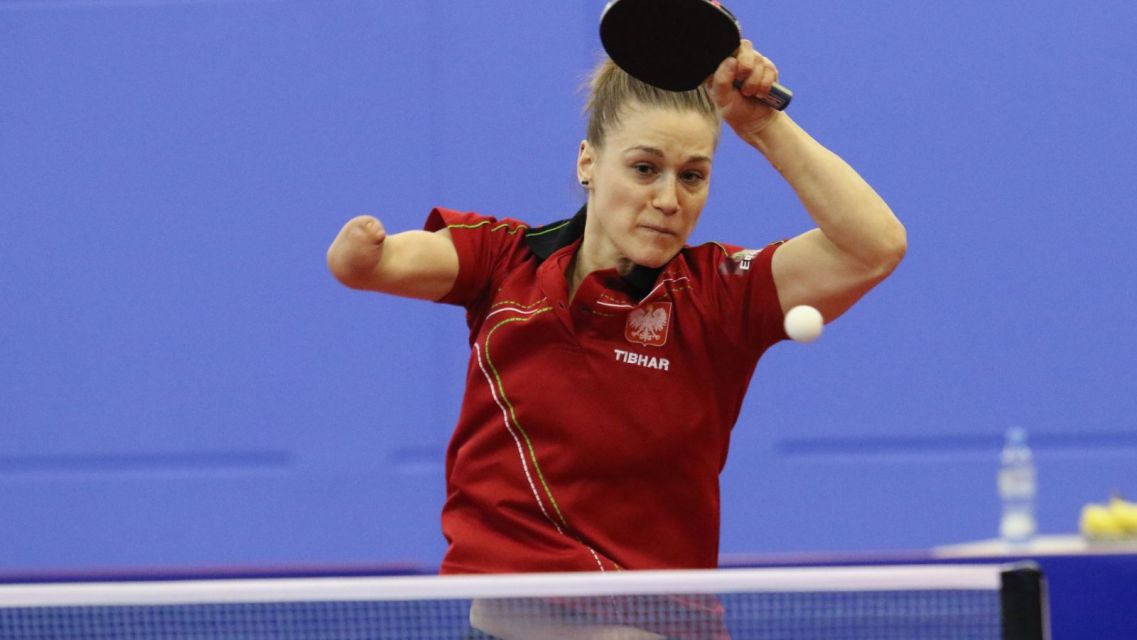Natalia Partyka was born without a right arm. Still, this is hardly the most interesting thing about her, and certainly is not her favorite topic of conversation. "I get a bit bored about being asked about disability all the time," says the 30-year-old Polish table tennis star, and rightly so. She is not a disabled player, but a player who just happens to have a disability. "Everything about me is made of table tennis," says Partyka. Listed at #70 in the International Table Tennis Federation world rankings, and formerly listed in the top 50, she can hold her own with anyone. In the 2012 London Olympics, she finished among the top 32 women in the world. In para table tennis, however, Partyka has raised the bar almost impossibly high for any would-be successors, and even for herself. Since first picking up a paddle at age seven, she has never backed away from a challenge. "She was a tomboy," recalls her mother Alicja. "We never pampered her because of her disability." It was the same when she started competing in table tennis. "From the beginning, I played with able-bodied and with disabled players," she recalls. The results, as they say, speak for themselves. In Sydney 2000, she became the youngest Paralympian ever at age 11. Four years later in Athens, she became the youngest ever gold medalist. She hasn't looked back since, winning every women's singles Class 10 gold medal on offer to date. "Everyone expects me to win my fifth gold in Tokyo 2020," says Partyka with a sly smile. "That is the only scenario I have in mind." She has an equally dominant record at the World Para Table Tennis Championships, unbeaten since 2002. In 2008, Partyka also qualified for the Olympics, the first Paralympian to do so. "Impossible is nothing, " she says. "You just have to believe in yourself, you just have to work harder and try your best, and then you realize that everything is possible." While Partyka tires of talking about her disability, she nonetheless appreciates the ability of her story to inspire others. "Maybe someone will see me and realize that their own disability is not the end of the world," she says. "Maybe someone will look at me and think they can achieve something bigger than they thought. Maybe sometimes you have to work a little bit harder if you really want to do something. "If I’m an inspiration, I can’t complain."
More at Scroll
